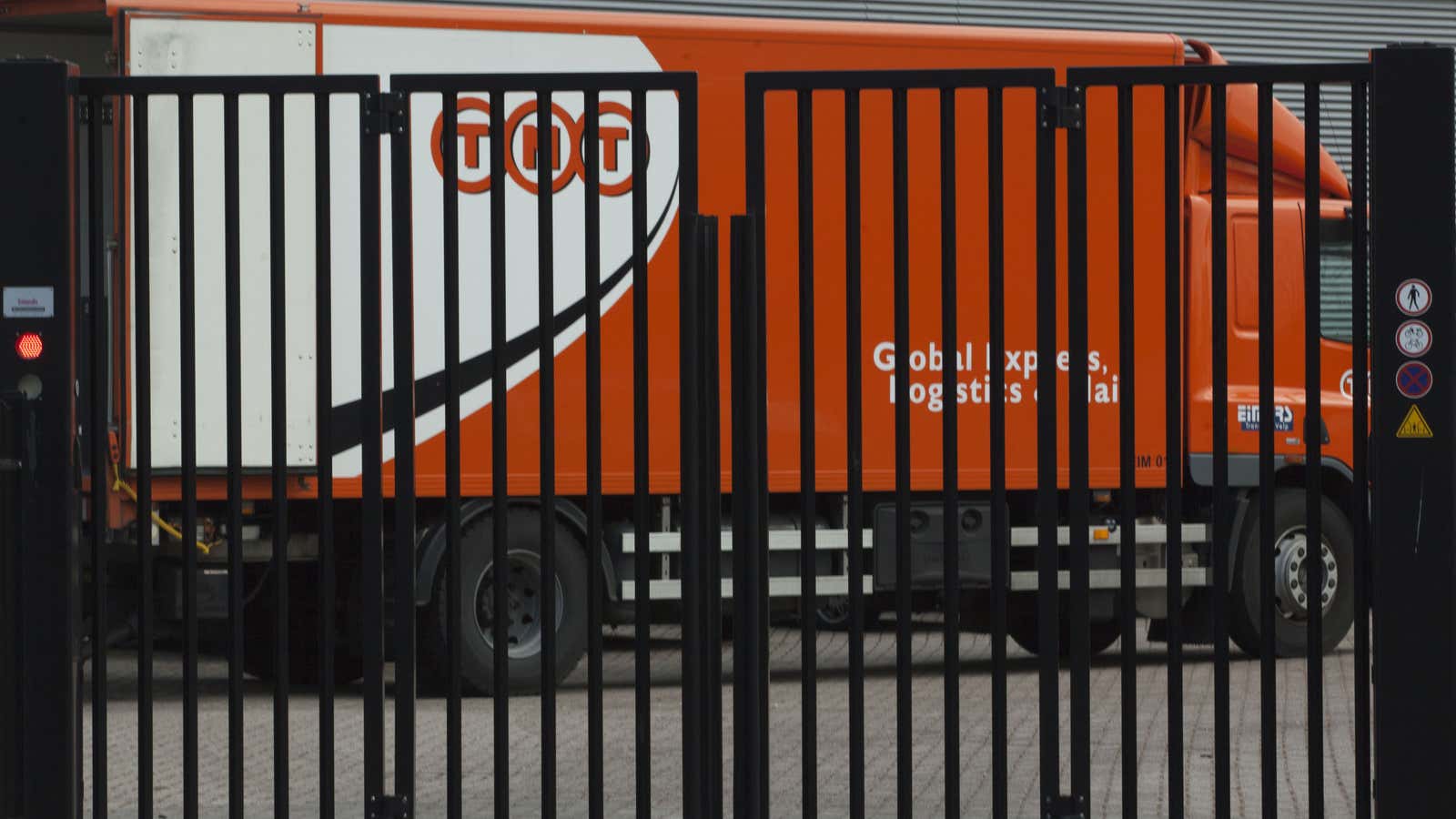Earlier today, United Parcel Service (UPS) announced withdrawal of its $6.9 billion plan to buy Dutch delivery business TNT Express, after the European Commission told the company it would block the deal on antitrust concerns. The merged company would have generated revenue of around $60 billion, compared with Deutsche Post DHL’s $68 billion and FedEx’s $43 billion, according to estimates.
The abandoned deal signaled the growing importance of locking down emerging market-share to drive future growth. Even though TNT Express was losing money by the fists-full in emerging markets, its footprint in those regions offered strategic promise—particularly to the relatively land-locked likes of UPS. While UPS’s ground-oriented approach is largely responsible for giving it a leg up on profitability over FedEx, its main rival, this strength is rooted predominantly on its native US soil. At present, only 26% of UPS revenues come from outside the US, which the deal would have boosted to 36%.
In many ways, UPS has been caught flat-footed by the rapid international growth of its competitors, including FedEx, but also DHL and TNT Express. In Asia, for instance, the deal would have given a quantum boost to UPS’s market share, bumping it from 16% to 28%, according to TNT Express’s estimates. By comparison, DHL currently leads the region with 31% of the market, followed by FedEx’s 25%. Looking in particular at high-growth areas, TNT Express is one of the larger players in China’s highly fragmented domestic market. It is already the second-largest operator in Australia in business-to-business delivery, and has built out aggressively in India. In addition, the Dutch company has 20% market share in Brazil, though it suffered losses there in the third quarter.
Even before the UPS announcement today, TNT Express share prices fell significantly below the €9.50 offer price, as investors had tired of the ”protracted regulatory hurdles to the deal,” according to Post&Parcel. This marks the latest deal quashed by the EC, after a proposed merger between NYSE Euronext and Deutsche Börse suffered a similar fate at its hands. Meanwhile, EU antitrust chief Joaquín Almunia told the FT (paywall) that the US Federal Trade Commission’s clearance of Google earlier this month will have no bearing on the European authority’s antitrust probe against Google on its own terms.
With the proposed UPS/TNT deal, the EC’s ruling hinged on its defining UPS and its competitors as “integrators”—meaning, express delivery companies that own aircrafts (paywall). The sticking point was that the deal would have seen TNT’s and UPS’s combined European market share (they claim 9.6% and 7.7%, respectively) give dominant player DHL (17.6%) a run for its money, according to Transport Intelligence via Bloomberg. (FedEx’s market share in European express business is a measly 3.3%.)
After the EC voiced concerns last October that Deutsche Post’s DHL and FedEx would be unable to challenge the merged company, UPS had scrambled to assuage those concerns, proposing the sell-off of various TNT assets (paywall). But because FedEx, apparently, declined to play ball, UPS was left proposing the sale of TNT assets to French deliverer DPD, which the EC evidently deemed insufficiently large to balance out sector competition (paywall).
Undeterred, the Netherlands postal service, which owns nearly 30% of TNT Express, says it will continue to look for a buyer.
